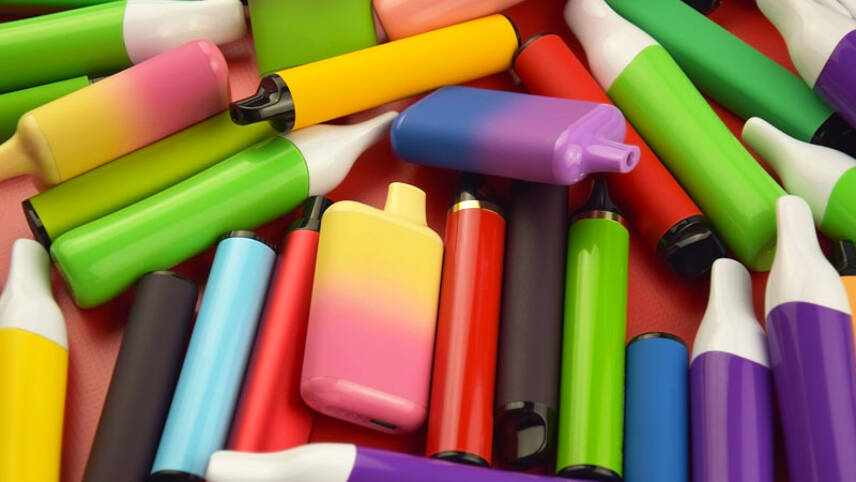Register for free and continue reading
Join our growing army of changemakers and get unlimited access to our premium content

Material Focus estimates that two disposable vapes are wasted every second in the UK
The ban was confirmed by the Government late on Sunday night (28 January) following a national consultation late last year. Also last autumn/winter, Scotland floated plans for its own ban to be implemented in 2024.
Under the UK Government’s plans, retailers will be banned from stocking vapes that are not refillable, which have proliferated the market in recent years. Material Focus estimates that 1.3 million of these hard-to-recycle devices are littered across the UK each week – the equivalent of two every second. The UK Government believes that a further four million are placed in bins each week.
Environment Secretary Steve Barclay called the new policy “a powerful tool in support of our efforts to crack down on waste and boost recycling”.
The Local Government Association’s chair for community wellbeing, David Fothergill, added: “Disposable vapes are inherently unsustainable products, meaning an outright ban remains the most effective solution to this problem.
“Single-use vapes blight our streets as litter, are a hazard in our bin lorries, and are expensive and difficult to deal with in our recycling centres.”
The Government’s main reasoning for the ban is to tackle nicotine use by children. Almost one in ten children aged 11 to 15 in the UK now vapes, with the practice having tripled over the past three years. Ministers believe the availability of disposables has been a “key driver” of the increase.
As the phase-out of disposable vapes is implemented, new powers will be introduced compelling manufacturers and retailers not to stock flavours designed to entice young people and to house vapes in plainer packaging.
During and after the phase-out, there will also be new rules for retailers on displaying vapes. They will need to keep vapes out of sight of children and position them with other restricted products rather than with items such as sweets.
The Government intends to table legislation to implement the changes as soon as possible.There will then be an implementation period of at least six months, giving businesses time to comply.
Green economy reaction
Green economy groups have broadly welcomed the ban.
Green Alliance’s head of resource policy Libby Peake said it “can’t come soon enough” and will have multiple environmental benefits.
Peake said: “Valuable lithium-ion batteries will stop going to waste or winding up as litter, along with all the casings that have been blighting our environment for too long. This means critical raw materials will be preserved for uses where they’re much needed – like renewable energy. The risk of fire from mishandled batteries will be minimised and dangerous plastic pollution will be prevented.”
Waste management firm Veolia’s senior executive VP for Northern Europe, Gavin Graveson, said: “When faced with an environmental crisis, every product that enters the market should be designed for recyclability. Disposable vapes are a clear example of when products have been designed with no thought for their environmental impact and should be subject to an extended producer responsibility scheme that incentivises the right eco-design.”
Veolia is one of a handful of businesses offering a disposable vape recycling scheme in the UK, but the market has grown faster than recycling capacity.


For other than for prescriptive medical reasons, their manufacture should be prohibited.